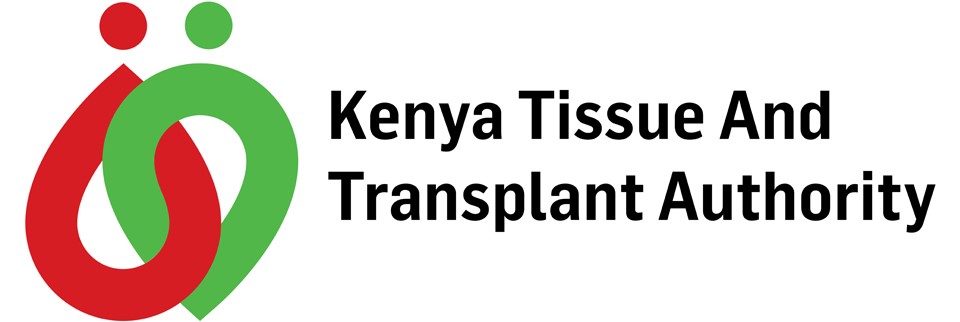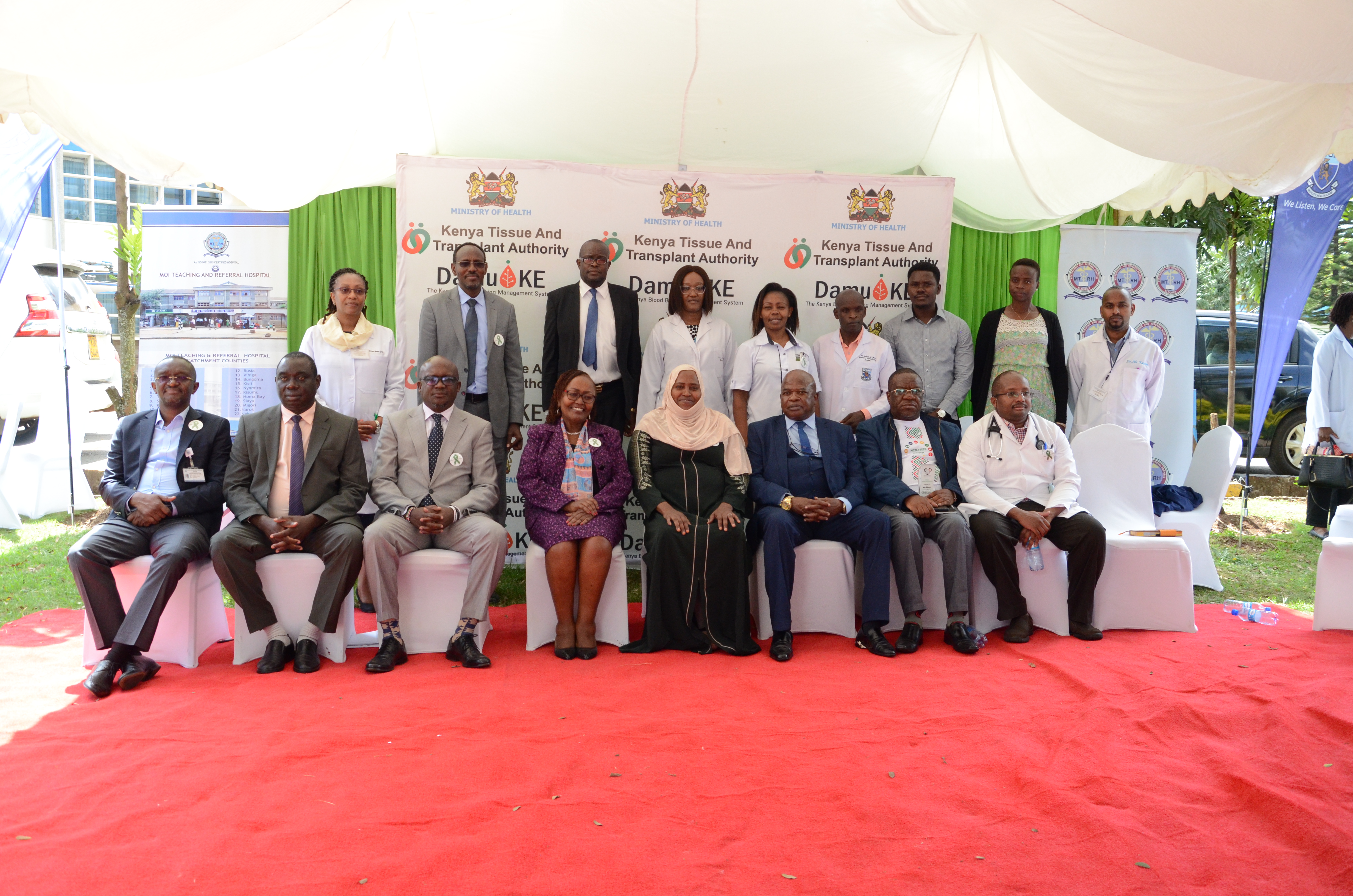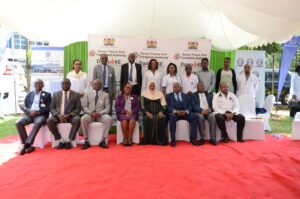KTTA & KNH mark World Transplant Day
Nairobi, June 6, 2023: World Transplant Day (WTD) celebration takes place on 6th June every year. The day is promoted by the World Health Organization and the National Transplant Organization serves as a reminder that there are thousands of people around the world who are alive thanks to organ transplants.
This day was commemorated by the Ministry of Health through Kenya Tissue andTransplant Authority and Kenyatta National Hospital together with families of recipients and donors. Activities included panel discussions, speeches, and testimonials of success stories from both donors and recipients.
KTTA works in partnership with organizations such as development Partners, Privatepractitioners, and facilities, Medicals Associations of experts within the Transplant Space e.g. Kenya Renal, Hematology, Oncology, and Public Hospitals facilities such as KNH & MOI Teaching & Referral Hospital, all formed part of efforts to ensure that the country has adequate and is self-sufficient in safe and quality blood, a major requirement during medical emergency situations.
World Transplant Day (WTD) is marked every year to celebrate those who were given a second opportunity at life through the organ donation of a selfless individual. The day serves as a reminder that there are thousands of people around the world who are alive thanks to organ transplantation.
Representing the State Department of Medical Services, Mr. Harry Kimtai, the Principal Secretary, Dr. Zeinab Gura, Ag. Deputy Director General of Health was speaking during the Celebration at the Kenyatta National Hospital Grounds to mark World Transplant Day, and took the opportunity to acknowledge the theme Hope for Tomorrow;Transforming lives through organ donation. Said Dr. Gura, “The government acknowledges the utmost significance of organ donation
and transplantation in preserving and enhancing lives. The year 2022 marked a significant milestone as the government initiated the establishment of the Kenya Tissue and Transplant Authority and the Human Leukocyte Antigens (HLA) typing laboratory at Kenyatta National Hospital. The establishment of the HLA laboratory has ensured the accessibility and affordability of this service for transplant patients in need. This shows proof of commitment by the government to transplant services.”
Ministry of Health and Kenya Tissue and Transplant Authority are on course to develop a comprehensive framework of policies and guidelines to ensure quality and ethical practices whilst safeguarding the rights and well-being of both donors and recipients as well as families and communities. Our commitment remains resolute to creating an environment that enforces good governance and supports effective and efficient regulation of organ donation and transplant in the country.
From a population of 52,214,791 people, studies indicate that approximately 5 million Kenyans have some form of chronic kidney disease with a significant proportion expected to progress to kidney failure. Specifically, the estimated number of patients with End Stage Kidney Disease (ESKD) who require renal replacement therapy (kidney transplants) is 12,500.
By October 2022, 6,300 patients (or about 50% of estimated Kenyans with kidney disease) were undergoing chronic hemodialysis treatments. Even though a majority of kidney patients opt for dialysis treatment due to various factors, the number of transplants in the country is still quite low. From 2012 to 2022, only
708 kidney transplants were done in Kenya. In 2021, only 160 kidney transplants versus 5,700 patients who were on hemodialysis gave a transplant conversion rate of 2.8% against a rate of approximately 10% that has been observed globally.
Kidney transplant is always preferred for patients who are eligible for such procedures as it overall improves patients’ quality of life, and productivity and can increase life expectancy by up to 20 years.
Apart from kidney cases, an estimated 75,000 people need corneal transplants with over 1,000 documented patients on the waiting lists across the various eye hospitals in the country awaiting corneal transplantation. In 2021, about 400 corneal transplant surgeries were successfully conducted in Kenya. Just like with kidney transplants, the facilities conducting corneal transplants are unable to meet the patient’s demand due to the limited number of tissues procured. KTTA is determined to inculcate a donation culture among the people to enable them to attain a perpetual annual collection of blood and including organ donations. KTTA conducts Blood donation drives and campaigns regularly throughout the year. In February this year, the agency together with partners organized and hosted the #ShowYourLoveSaveaLife blood donation campaign at JKUAT to coincide with the Valentine’s Day celebrations on February 14, 2023.
The #ShowYourLoveSaveaLife blood donation campaign was a week-long exercise aimed to mobilize the public to come forward and donate blood, and also to increase public awareness of the importance of donating blood. The blood donation drives targeted young adults aged between 18 to 35 years
Ends…//
About Kenya Tissue and Transplant Authority (KTTA): Kenya Tissue and Transplant Authority, the successor to the Kenya National Blood Transfusion Service, is a parastatal established in August 2022 under the Ministry of Health. It has the mandate to oversee, supervise and coordinate the collection and distribution of safe blood and blood products in Kenya. It also develops relevant policies, regulations, and guidelines for the availability of safe and equitable tissue, organs, and regenerative medicine therapies. The vision of KTTA is to make Kenya self-sufficient in safe and quality blood, tissues, and human organs.



